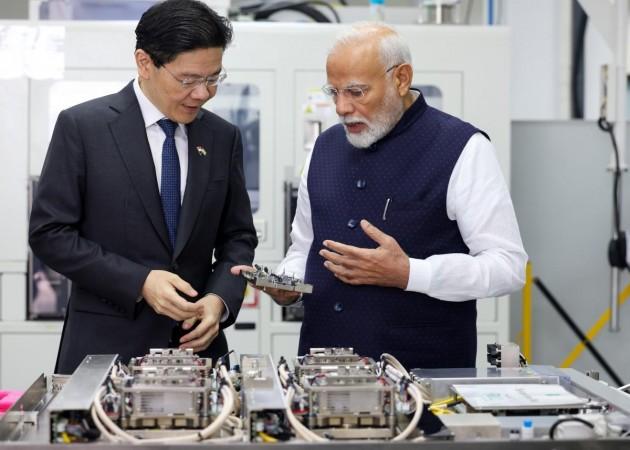
India is on the brink of a significant transformation, with the potential to become a global hub for semiconductor manufacturing. Industry experts predict a massive investment of up to $30 billion in the sector over the next three to five years. This influx of capital is expected to strengthen India's position in the global supply chain, marking a significant shift in the country's industrial landscape.
The Maharashtra government recently approved four major projects, including a semiconductor manufacturing project to be jointly set up by Israel's Tower Semiconductor and the Adani Group. This project, located in Panvel, Raigad district, is expected to see an investment of Rs 58,763 crore in the first phase and another Rs 25,184 crore in the second phase. The initiative is projected to create at least 15,000 jobs, contributing significantly to the local economy.
Prabhu Ram, VP-Industry Research Group, CyberMedia Research (CMR), believes that India's strategic investments in the semiconductor industry aim to bolster its domestic manufacturing capabilities and elevate its position within global supply chains. This perspective underscores the country's commitment to becoming a major player in this strategically vital sector.

During Prime Minister Narendra Modi 's recent visit to Singapore, both countries announced a partnership to cooperate in the field of semiconductors. This collaboration aims to leverage the complementary strengths of their semiconductor ecosystems and tap into opportunities to build resilience in their semiconductor supply chains.
The partnership will include government-led policy exchanges on ecosystem development, supply chain resilience, and workforce development. In addition to the Maharashtra project, the Union Cabinet, chaired by PM Modi, has also approved the proposal of Kaynes Semicon Pvt Ltd to set up a semiconductor unit in Sanand, Gujarat, with an investment of Rs 3,300 crore. This unit will produce nearly 60 lakh chips per day, further strengthening India's semiconductor manufacturing capabilities. The Indian government's initiatives, such as the Semicon India Programme and the India Semiconductor Mission, are focused on capturing a significant share of the global market, driving innovation, and stimulating economic growth through job creation and technological advancement. These initiatives have played a pivotal role in attracting investments by offering a supportive policy framework, financial incentives, and infrastructure development.
The semiconductor industry is a strategically vital sector, and India's efforts to become a global hub for semiconductor manufacturing are reminiscent of similar initiatives in other countries. For instance, in the 1980s, Japan made significant investments in semiconductor manufacturing, leading to a boom in the country's electronics industry.
Similarly, South Korea and Taiwan have also invested heavily in this sector, becoming global leaders in semiconductor production. India's push into the semiconductor sector comes at a time when the global supply chain is facing significant disruptions due to the COVID-19 pandemic. The country's strategic investments in this sector aim to reduce its dependence on imports and enhance its self-sufficiency.By doing so, India seeks to establish itself as a key player in the global semiconductor industry, driving innovation, stimulating economic growth, and creating jobs by fostering a robust semiconductor manufacturing ecosystem.
India's efforts to become a global hub for semiconductor manufacturing represent a significant step towards achieving technological self-reliance. The country's strategic investments in this sector, coupled with supportive government policies and initiatives, are expected to drive innovation, stimulate economic growth, and create jobs. As India continues to attract significant investments in the semiconductor sector, it is poised to become a major player in the global market, contributing to the resilience of the global supply chain. This development marks a significant shift in India's industrial landscape, positioning it as a key player in the global semiconductor industry.

















